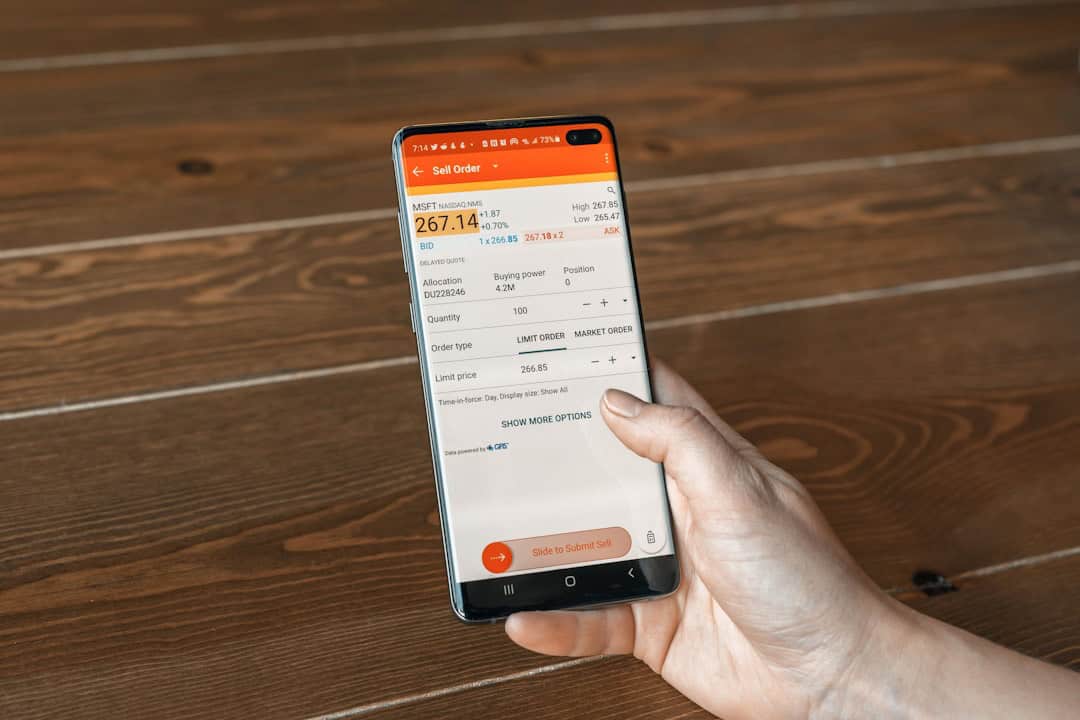Online privacy has become a critical concern in the digital age, affecting both individuals and organizations. As more personal and sensitive information is shared and stored online, protecting this data from unauthorized access is increasingly important. Online privacy encompasses safeguarding personal information such as financial details, medical records, and browsing history from exploitation or misuse by malicious actors.
It also involves protecting one’s identity and preventing unauthorized surveillance or tracking of online activities. Maintaining online privacy is essential for preserving autonomy and control over one’s digital presence. Inadequate privacy measures can lead to personal information exposure, potentially resulting in identity theft, financial fraud, or reputational damage.
The erosion of online privacy can also have broader societal implications, including infringement of civil liberties and undermining of democratic principles. Understanding the importance of online privacy is crucial for personal security and the preservation of fundamental rights in the digital realm. Online privacy is a fundamental aspect of modern life that requires careful attention and proactive measures to ensure protection.
Recognizing the significance of safeguarding personal information and maintaining control over one’s digital footprint allows individuals to mitigate potential risks and uphold their rights to privacy and security in the online environment.
Key Takeaways
- Online privacy is crucial for protecting personal information and preventing identity theft and cyber attacks.
- Strengthening password security is essential for preventing unauthorized access to online accounts and sensitive information.
- Implementing two-factor authentication adds an extra layer of security by requiring a second form of verification to access accounts.
- Using virtual private networks (VPNs) can help ensure secure browsing by encrypting internet connections and masking IP addresses.
- Being mindful of phishing scams and email security is important for avoiding fraudulent attempts to obtain personal information and sensitive data.
Strengthening Password Security
Password Best Practices
To address this vulnerability, it is essential to adopt strong password practices. This includes using complex combinations of letters, numbers, and special characters, as well as avoiding easily guessable information like birthdates or common words. Additionally, implementing unique passwords for each online account is vital to prevent a single security breach from compromising multiple accounts.
Password Management and Multi-Factor Authentication
Using a password manager can help individuals generate and store complex passwords for different accounts securely. Furthermore, regularly updating passwords and enabling multi-factor authentication can provide an extra layer of security against unauthorized access.
Protecting Personal Information
By strengthening password security, individuals can significantly reduce the risk of unauthorized access to their online accounts and protect their personal information from potential breaches. In summary, strengthening password security is a fundamental step in enhancing online privacy and protecting personal information from unauthorized access.
By adopting strong password practices and utilizing tools like password managers and multi-factor authentication, individuals can bolster their defenses against potential security threats and safeguard their digital identities.
Implementing Two-Factor Authentication

In addition to strengthening password security, implementing two-factor authentication (2FA) is another effective measure for enhancing online privacy and security. 2FA adds an extra layer of protection by requiring users to provide a second form of verification, such as a unique code sent to their mobile device or a biometric scan, in addition to their password when accessing an account. This additional step helps to verify the user’s identity and significantly reduces the risk of unauthorized access, even if a password is compromised.
Furthermore, 2FA can help mitigate the impact of phishing attacks and other forms of social engineering by adding an extra barrier for malicious actors attempting to gain unauthorized access to accounts. By requiring a second form of verification, 2FA makes it more challenging for attackers to compromise accounts through stolen or leaked passwords. As a result, implementing 2FA can greatly enhance the overall security posture of individuals and organizations, providing an additional layer of defense against potential cyber threats.
In conclusion, implementing two-factor authentication is a valuable strategy for enhancing online privacy and security. By requiring an additional form of verification beyond passwords, 2FA helps to mitigate the risk of unauthorized access and provides a more robust defense against potential security threats. As such, individuals and organizations should consider implementing 2FA as part of their broader efforts to protect sensitive information and maintain control over their digital identities.
Using Virtual Private Networks (VPNs) for Secure Browsing
| VPN Provider | Number of Servers | Encryption Protocols | Supported Devices |
|---|---|---|---|
| ExpressVPN | 3000+ | OpenVPN, L2TP/IPsec, PPTP | Windows, Mac, iOS, Android, Linux |
| NordVPN | 5000+ | OpenVPN, IKEv2/IPsec | Windows, Mac, iOS, Android, Linux |
| Surfshark | 3200+ | OpenVPN, IKEv2/IPsec | Windows, Mac, iOS, Android, Linux |
Another essential tool for maintaining online privacy is the use of Virtual Private Networks (VPNs) for secure browsing. VPNs create a secure and encrypted connection between a user’s device and the internet, effectively masking their IP address and encrypting their online activities. This not only helps to protect sensitive information from potential eavesdropping or surveillance but also allows users to browse the internet anonymously without revealing their true location or identity.
Moreover, VPNs are particularly valuable when using public Wi-Fi networks, which are often vulnerable to security threats such as eavesdropping and man-in-the-middle attacks. By using a VPN, individuals can ensure that their data remains secure and private even when connected to unsecured public networks. Additionally, VPNs can also bypass geographical restrictions and censorship, allowing users to access content and services that may be restricted in their location.
In summary, using Virtual Private Networks (VPNs) is a critical strategy for maintaining online privacy and security. By encrypting internet traffic and masking IP addresses, VPNs help individuals protect their sensitive information from potential threats and maintain anonymity while browsing the web. As such, incorporating VPNs into one’s online privacy toolkit can significantly enhance digital security and provide greater control over one’s online activities.
Being Mindful of Phishing Scams and Email Security
Phishing scams are a prevalent form of cyber-attack that targets individuals through deceptive emails or messages designed to trick them into revealing sensitive information or clicking on malicious links. These scams often impersonate legitimate organizations or individuals in an attempt to gain access to personal accounts or financial information. Therefore, being mindful of phishing scams and practicing good email security habits is essential for protecting against potential threats to online privacy.
To mitigate the risk of falling victim to phishing scams, individuals should exercise caution when opening emails from unknown senders or clicking on links or attachments within suspicious messages. Verifying the authenticity of emails from unfamiliar sources and avoiding sharing sensitive information through email can help prevent falling prey to phishing attempts. Additionally, enabling email encryption and using spam filters can further enhance email security by reducing the likelihood of receiving malicious or fraudulent messages.
In conclusion, being mindful of phishing scams and practicing good email security habits is crucial for protecting online privacy and safeguarding personal information from potential threats. By remaining vigilant and adopting best practices for email security, individuals can reduce the risk of falling victim to phishing attacks and maintain greater control over their digital communications.
Regularly Updating Software and Operating Systems

Staying Ahead of Cyber Threats
Software updates often include patches for known vulnerabilities and security flaws that could be exploited by malicious actors. By keeping software and operating systems up to date, individuals can ensure that their devices are equipped with the latest security enhancements and protections against potential cyber threats.
The Risks of Outdated Software
Furthermore, outdated software and operating systems are more susceptible to exploitation by malware and other forms of cyber-attacks. Therefore, regularly installing updates and security patches is essential for reducing the risk of unauthorized access to personal devices and protecting sensitive information from potential breaches. Additionally, enabling automatic updates can streamline the process of keeping software and operating systems current, ensuring that individuals are consistently benefiting from the latest security improvements.
Maintaining a Strong Defense
In summary, regularly updating software and operating systems is a critical practice for maintaining online privacy and security. By staying current with software updates and security patches, individuals can reduce the risk of falling victim to cyber threats and protect their personal information from potential vulnerabilities. As such, prioritizing regular updates is essential for maintaining a strong defense against evolving security risks in the digital landscape.
Social media platforms have become integral parts of modern communication and networking, allowing individuals to connect with others and share various aspects of their lives online. However, it is essential to be mindful of the personal information shared on these platforms to protect online privacy effectively. Limiting the amount of personal information shared on social media can help mitigate potential risks associated with unauthorized access or misuse of sensitive data.
Moreover, oversharing personal information on social media can also increase the likelihood of identity theft or targeted cyber-attacks. Therefore, individuals should carefully consider the type of information they share on social media platforms and adjust their privacy settings to control who can access their posts and personal details. Additionally, being cautious about accepting friend requests or connections from unknown individuals can help prevent unauthorized access to personal information shared on social media.
In conclusion, limiting personal information shared on social media platforms is crucial for protecting online privacy and maintaining control over one’s digital identity. By being mindful of the type of information shared online and adjusting privacy settings accordingly, individuals can reduce the risk of potential threats to their personal information and enjoy a safer and more secure experience on social media platforms. As such, exercising caution when sharing personal details on social media is essential for preserving online privacy in an increasingly interconnected digital world.
In conclusion, maintaining online privacy requires a multifaceted approach that encompasses various strategies for protecting personal information and safeguarding digital identities. By understanding the importance of online privacy, strengthening password security, implementing two-factor authentication, using Virtual Private Networks (VPNs), being mindful of phishing scams and email security, regularly updating software and operating systems, and limiting personal information shared on social media platforms, individuals can enhance their digital security posture and maintain greater control over their online privacy. Through proactive measures and informed decision-making, individuals can navigate the digital landscape with confidence while protecting their personal information from potential threats and vulnerabilities.
Cybersecurity in the metaverse is becoming increasingly important as more industries and businesses collaborate within this virtual space. According to a related article on Metaversum.it, the significance and impact of the metaverse are projected to have a major influence on future trends and innovations in the industry. As companies continue to expand their presence in the metaverse, it is crucial for them to prioritize Cybersecurity measures to protect sensitive data and ensure a safe virtual environment for their users. To read more about the future trends and innovations in the metaverse industry, check out the article here.
FAQs
What is cybersecurity?
Cybersecurity refers to the practice of protecting systems, networks, and programs from digital attacks. It involves implementing measures to prevent unauthorized access, data breaches, and other cyber threats.
Why is cybersecurity important?
Cybersecurity is important because it helps to protect sensitive information, such as personal data, financial information, and intellectual property, from being compromised. It also helps to ensure the integrity and availability of digital assets.
What are some common cyber threats?
Common cyber threats include malware, phishing attacks, ransomware, DDoS attacks, and insider threats. These threats can lead to data loss, financial loss, and damage to an organization’s reputation.
How can individuals protect themselves from cyber threats?
Individuals can protect themselves from cyber threats by using strong, unique passwords, enabling two-factor authentication, keeping their software and devices up to date, and being cautious about clicking on links or downloading attachments from unknown sources.
What are some best practices for businesses to improve cybersecurity?
Businesses can improve cybersecurity by implementing a robust cybersecurity policy, providing employee training on security best practices, regularly updating and patching software and systems, and conducting regular security audits and assessments.
What is the role of government in cybersecurity?
Governments play a crucial role in cybersecurity by establishing laws and regulations to protect critical infrastructure and sensitive data, collaborating with other countries to combat cyber threats, and providing resources and support for cybersecurity initiatives.











Leave a Reply